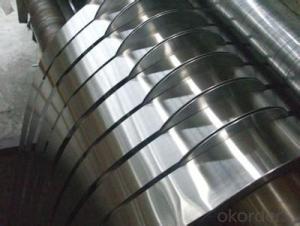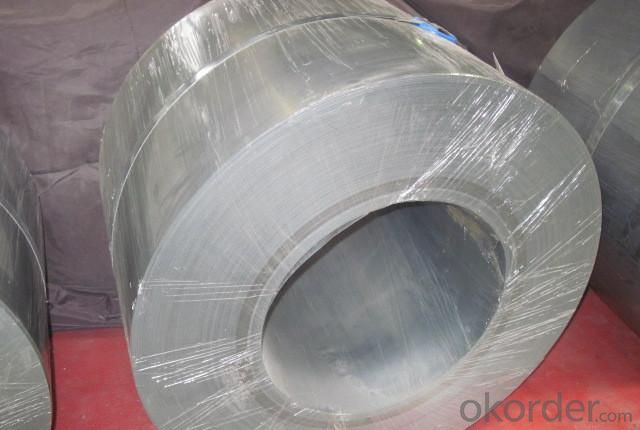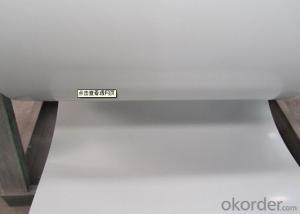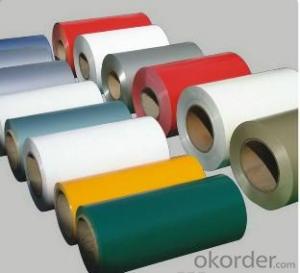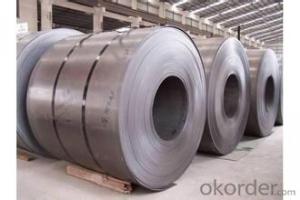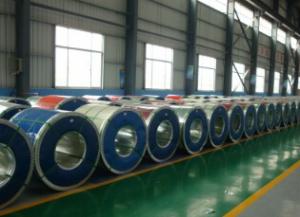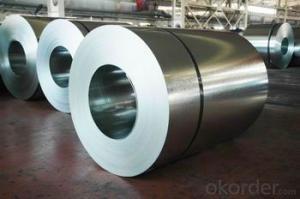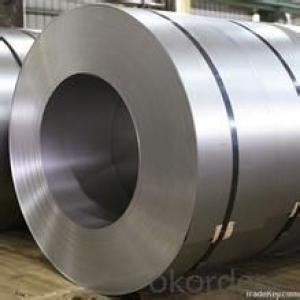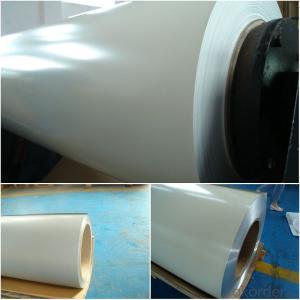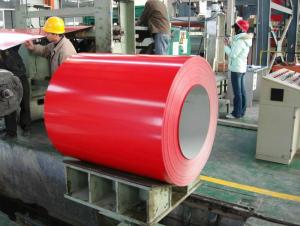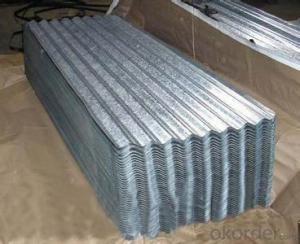Silicium steel coils and sheets
- Loading Port:
- China Main Port
- Payment Terms:
- TT OR LC
- Min Order Qty:
- -
- Supply Capability:
- -
OKorder Service Pledge
Quality Product, Order Online Tracking, Timely Delivery
OKorder Financial Service
Credit Rating, Credit Services, Credit Purchasing
You Might Also Like
Packaging & Delivery
| Packaging Detail: | as requirements |
| Delivery Detail: | 7-15days |
Specifications
Cold Rolled Oriented Silicon Steel
Grade:M50W600,M50W800,M50W1000,M50W1300D
T:0.5MM
W:1000/1050/1150/1250MM
| commodity | Cold Rolled Non Grain Oriented Steel |
| grade | M50W600,W800,W1000,W1300,W1300D |
| suraface treament | slightly oiled, Non alloy steel sheet |
| Thickness | 0.5mm |
| Widness | 1000/ 1050/ 1150/1200mm |
| ID coil | 508mm / 610mm |
| MIQ | 25MT for each size |
| Package: | properly packed for ocean freight exportation in 20'' container |
| Price validity time | 5 working days |
| Payment terms | 30%TT in advance+70% irrevocable L/C at sight |
| Delivery tolerance | +/- 5% on both quantity and value |
| delivery time | 40 days after recepit of 30% TT |
| Remarks | MTC 3.1 will be handed on with shipping documents |
| We accept SGS certificatation test |
- Q: Hi I was thinking about buying this knife, but i wasn't sure if it was good because it's stainless steel.
- This isn't really a question for this section, but I'm still happy to help out since I'm a big cutlery nerd as well. One thing to look out for when buying a knife is a lack of specifics on what steel is being used. High Carbon Stainless Steel doesn't tell you what the steel is, just what it MIGHT be. Chances are it's something along the lines of 420HC or 440A, both of which are softer steels. They aren't the worst steels around, but they are very quick to dull. You'd be better off looking at the Balisongs of Benchmade. They'll cost more, but you'll know that you're getting something made with quality materials and that won't break on you. And if it does break for some odd reason, Benchmade's warranty and customer service are both fantastic. Although if a more questionable knife is okay with you as long as the price isn't too high, then at least 420HC and 440A aren't too brittle and will take a decent edge even though they'll dull quickly. As for whether stainless steel is good for a knife or not, that depends on the type of stainless steel and what you're going to use the knife for. Many stainless steels are more brittle than a carbon steel, so high carbon stainless steels are a bit more likely to rust but a little tougher as well. In a butterfly knife, a steel like that is a good way to go, although the steels used by Benchmade, as I mentioned, are of a much better quality.
- Q: How do steel coil manufacturers handle product recalls?
- Steel coil manufacturers handle product recalls by following a systematic process. Firstly, they identify the specific batches or lots of steel coils that need to be recalled based on quality or safety concerns. Then, they promptly notify their distributors, customers, and regulatory authorities about the recall, providing all relevant information. The manufacturers work closely with these stakeholders to ensure that the affected coils are returned or replaced. Additionally, they investigate and address the root cause of the issue to prevent similar recalls in the future, implementing necessary quality control measures and process improvements.
- Q: How do steel coils contribute to the energy efficiency of buildings?
- Steel coils contribute to the energy efficiency of buildings in various ways. Firstly, steel coils are commonly used in the construction of roofing systems. These coils are typically coated with reflective materials that help to reduce heat absorption from the sun. By reflecting sunlight away from the building, steel coils can significantly reduce the amount of heat that enters the building, thereby reducing the need for air conditioning and cooling systems. This, in turn, leads to lower energy consumption and reduced electricity bills. Additionally, steel coils are often used in the insulation of buildings. Steel coil insulation acts as a barrier against heat transfer, preventing heat from escaping in colder months and entering the building in warmer months. By effectively insulating the building, steel coils help maintain a consistent internal temperature, reducing the need for heating or cooling systems. This results in lower energy consumption and enhanced energy efficiency. Furthermore, steel coils are known for their durability and longevity. Their high strength and resistance to corrosion make them ideal for constructing energy-efficient buildings. By using steel coils in the construction process, buildings can be designed with thinner walls while maintaining structural integrity. Thinner walls allow for increased insulation space, enabling better energy efficiency and reducing the overall energy demand of the building. Moreover, steel coils are also recyclable, making them an environmentally friendly choice for building materials. The recycling process of steel coils requires significantly less energy compared to the production of new steel, thereby reducing carbon emissions. By using recycled steel coils, buildings can contribute to sustainable construction practices and help reduce their environmental impact. In conclusion, steel coils contribute to the energy efficiency of buildings through their reflective properties, insulation capabilities, durability, and recyclability. By utilizing steel coils in roofing and insulation systems, buildings can reduce heat absorption and heat transfer, leading to lower energy consumption and enhanced energy efficiency. Additionally, the use of steel coils supports sustainable construction practices, promoting a greener and more environmentally friendly approach to building design.
- Q: I have a necklace that has a pendent made out of stainless steel. The pendent is connected by a cord, not chain, that I can take on and off; so, I leave it on all the time. It has gotten pretty tarnished because of that.
- When okorder okorder /
- Q: How do steel coils contribute to the marine industry?
- Steel coils are a crucial component in the marine industry as they have various applications that contribute to the development, maintenance, and efficiency of marine vessels. Firstly, steel coils are used in the construction of ships and offshore platforms. Their high strength and durability make them ideal for the hull structure, ensuring the integrity and safety of the vessel, even in harsh marine environments. Additionally, steel coils are utilized in the fabrication of various marine equipment and components. For instance, they are used to manufacture propellers, shafts, and rudders, which are essential for steering and propelling ships. The use of steel coils in these parts ensures their resilience against the corrosive effects of seawater, thus increasing their lifespan and reducing maintenance costs. Moreover, steel coils are employed in the production of marine pipelines and oil rig infrastructure. These coils are transformed into pipes and tubes that are used in the transportation of oil, gas, and other fluids. The strength and corrosion resistance of steel coils are vital in ensuring the reliability and safety of these pipelines, as they need to withstand extreme pressure and exposure to saltwater. Steel coils also play a role in the marine industry's maintenance and repair processes. When a ship undergoes renovations or repairs, steel coils are often used to replace damaged or corroded sections of the vessel. The versatility of steel coils allows them to be molded and welded into various shapes and sizes, making them suitable for different repair applications. Overall, steel coils contribute significantly to the marine industry by providing the necessary strength, durability, and corrosion resistance for the construction, maintenance, and efficiency of marine vessels. Their applications in shipbuilding, component fabrication, pipeline construction, and repair processes make them indispensable to the development and sustainability of the marine industry.
- Q: My 8-year-old and 9-year-old boys have approached me with an interesting question. Does fire burn steel? One says yes, the other says no. Help me to settle yet another debate :)
- It can burn it... but not the sort of fire you would find at home... Ive actually done it before in a silversmithing class with a very hot blow torch. It takes a long time, the metal first goes pink, then glowing orange red... it stays that way for a while, and then 'cracks' kind of loudly and basically disintergrates very suddenly. A torch this hot has a very hard (noisy) flame which is very transparent. But you cant burn it in the fireplace.
- Q: How do steel coils impact the overall cost of production?
- The overall cost of production in various industries is greatly affected by steel coils. Initially, the expense of the steel coils themselves can be quite significant. The price of steel is influenced by several factors, including supply and demand, raw material costs, and market fluctuations. Any increase in the price of steel coils can directly impact the overall cost of production, as they are a major component in the manufacturing process. Furthermore, the operational costs of production are also influenced by steel coils. These coils are commonly used in different manufacturing processes, such as stamping, rolling, and forming, which require specialized machinery. The efficiency and effectiveness of these processes greatly depend on the durability, quality, and size of the steel coils. If the coils are of low quality or not suitable for the specific production requirements, it can result in increased downtime, machinery maintenance, and rework, all contributing to higher production costs. Additionally, the transportation costs associated with steel coils can impact the overall cost of production. Steel coils are typically heavy and bulky, requiring special handling and transportation arrangements. The logistics costs can be significantly influenced by factors such as the distance between the supplier and the production facility, as well as the chosen mode of transportation. Any rise in transportation expenses, such as fuel prices or shipping fees, can directly affect the overall cost of production. Lastly, the availability of steel coils can also impact production costs. During periods of high demand or limited supply, the price of steel coils may increase, resulting in higher production costs. Moreover, if there is a shortage of steel coils due to trade restrictions or disruptions in the supply chain, manufacturers may have to resort to alternative materials or sources, which could be more expensive or of lower quality. These factors can have a ripple effect on the overall cost of production. In conclusion, steel coils have a significant impact on the overall cost of production. Their cost, quality, transportation, and availability all influence the efficiency, effectiveness, and affordability of the manufacturing process. Therefore, manufacturers must carefully consider and manage these factors to optimize their production costs and maintain competitiveness in their respective industries.
- Q: How much should someone sell a 6 ft stainless steel counter? How about one with a sink?
- Sheet stainless steel is about $2.00 to $2.75 per lb. in the US right now for a 2B stainless steel without any special finish. The cost of a sink or counter is going to vary widely. The labor to fabricate it is going to be a lot higher than the material cost so the price per pound is not going to tell you much. In California a custom 6' counter would be somewhere between $1,200 and $3,000. A standard size single compartment sink would be about half of that.
- Q: I'm looking to get a track bike/ fixie to ride around the city of Chicago. I've looked at many bikes and they're mostly made out of Hi Ten steel. My old fixie (which was stolen at North Ave Beach) was made out of aluminum (KHS FLITE 100). How big of a difference is it between aluminum and steel? I know steel is heavier but how does it effect the ride? Is a aluminum bike or a steel bike better to get to ride around the bike path and in the city of Chicago?
- Depends okorder
- Q: Can steel coils be used in the production of automotive parts?
- Indeed, the utilization of steel coils is possible in the manufacturing of automotive parts. Various automotive components like body panels, frames, chassis, suspension parts, and engine parts frequently incorporate steel coils within their production process. To achieve the desired shape of these automotive parts, the steel coils typically undergo a range of techniques including cutting, stamping, bending, and welding. The strength, durability, and corrosion resistance of steel make it a favored material for automotive parts. Additionally, steel coils are accessible in different grades and thicknesses, enabling manufacturers to customize the material properties to fulfill specific requirements for diverse automotive applications. Collectively, steel coils play a crucial role in the fabrication of automotive parts, thereby contributing significantly to the performance, safety, and durability of vehicles.
Send your message to us
Silicium steel coils and sheets
- Loading Port:
- China Main Port
- Payment Terms:
- TT OR LC
- Min Order Qty:
- -
- Supply Capability:
- -
OKorder Service Pledge
Quality Product, Order Online Tracking, Timely Delivery
OKorder Financial Service
Credit Rating, Credit Services, Credit Purchasing
Similar products
Hot products
Hot Searches
Related keywords
